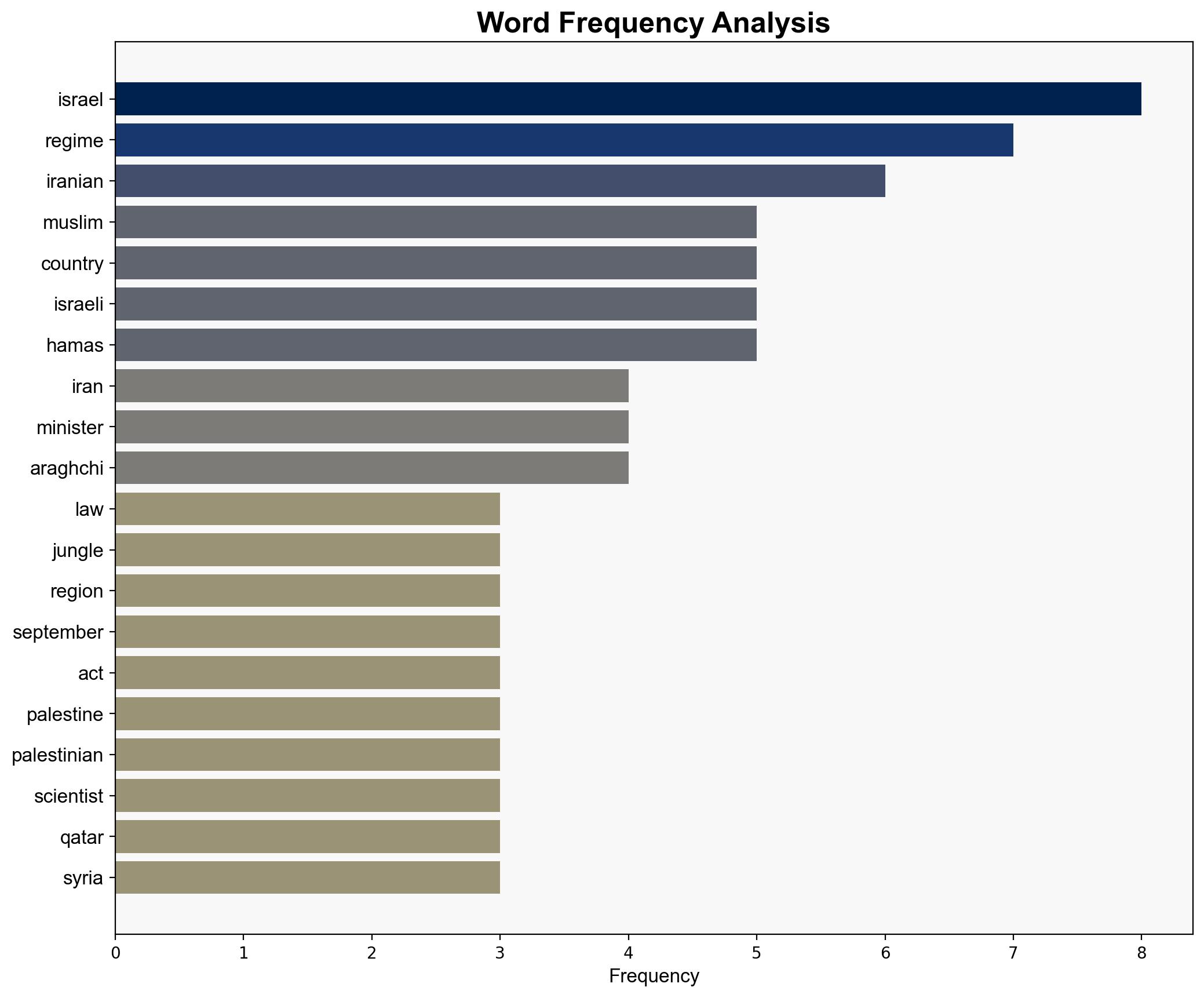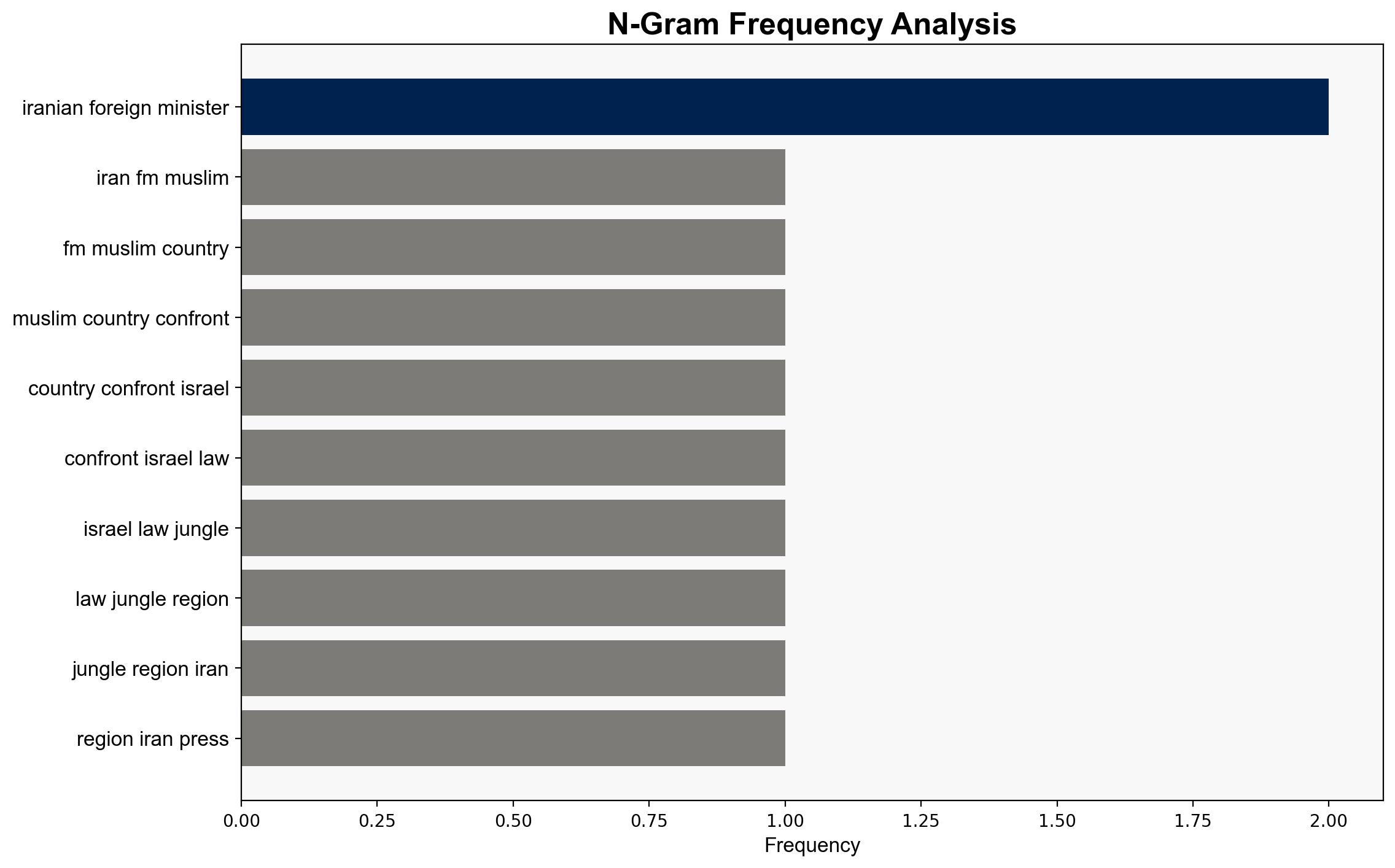Iran FM calls on Muslim countries to confront Israel’s ‘law of the jungle’ against region – Globalsecurity.org
Published on: 2025-09-13
Intelligence Report: Iran FM calls on Muslim countries to confront Israel’s ‘law of the jungle’ against region – Globalsecurity.org
1. BLUF (Bottom Line Up Front)
The Iranian Foreign Minister’s call for Muslim countries to confront Israel reflects heightened regional tensions and potential shifts in alliances. The most supported hypothesis suggests Iran is seeking to consolidate regional influence by rallying Muslim countries against Israel. Confidence level: Moderate. Recommended action: Monitor regional diplomatic engagements and military movements closely to anticipate potential escalations.
2. Competing Hypotheses
1. **Hypothesis A**: Iran is genuinely seeking to unify Muslim countries to counter perceived Israeli aggression and influence in the region. This is driven by ideological and geopolitical motives to strengthen regional alliances and counterbalance Western influence.
2. **Hypothesis B**: Iran’s call is primarily a strategic maneuver to distract from its internal challenges and international pressures, using the Israeli threat as a unifying external adversary to consolidate domestic support and regional leadership.
Using ACH 2.0, Hypothesis A is better supported by Iran’s consistent rhetoric and actions aligning with regional alliance-building efforts. Hypothesis B, while plausible, lacks direct evidence of internal diversionary tactics in the current context.
3. Key Assumptions and Red Flags
– **Assumptions**: It is assumed that Muslim countries have the capacity and willingness to unify against Israel. Another assumption is that Iran’s intentions are purely regional and not influenced by broader geopolitical strategies.
– **Red Flags**: The lack of concrete evidence of unified action from other Muslim countries. Potential cognitive bias in interpreting Iran’s intentions solely through its public statements.
– **Deception Indicators**: Iran’s rhetoric may be exaggerated to rally support, and the portrayal of Israel’s actions might be selectively framed to fit a narrative.
4. Implications and Strategic Risks
– **Geopolitical Risks**: Increased tensions could lead to military confrontations, impacting regional stability and global energy markets.
– **Economic Implications**: Potential disruptions in regional trade routes and energy supplies.
– **Cyber and Psychological Dimensions**: Possible increase in cyber operations targeting critical infrastructure and information warfare to influence public opinion.
5. Recommendations and Outlook
- Enhance intelligence monitoring on regional diplomatic and military activities.
- Engage in diplomatic dialogues to de-escalate tensions and promote regional stability.
- Scenario Projections:
- Best Case: Diplomatic resolutions lead to reduced tensions and enhanced regional cooperation.
- Worst Case: Escalation into broader military conflict, impacting global security and economy.
- Most Likely: Continued rhetorical and diplomatic posturing without significant military escalation.
6. Key Individuals and Entities
– Abbas Araghchi
– Benjamin Netanyahu
– Khalil al-Hayya
– Khaled Meshal
– Zaher Jabarin
7. Thematic Tags
national security threats, cybersecurity, counter-terrorism, regional focus





